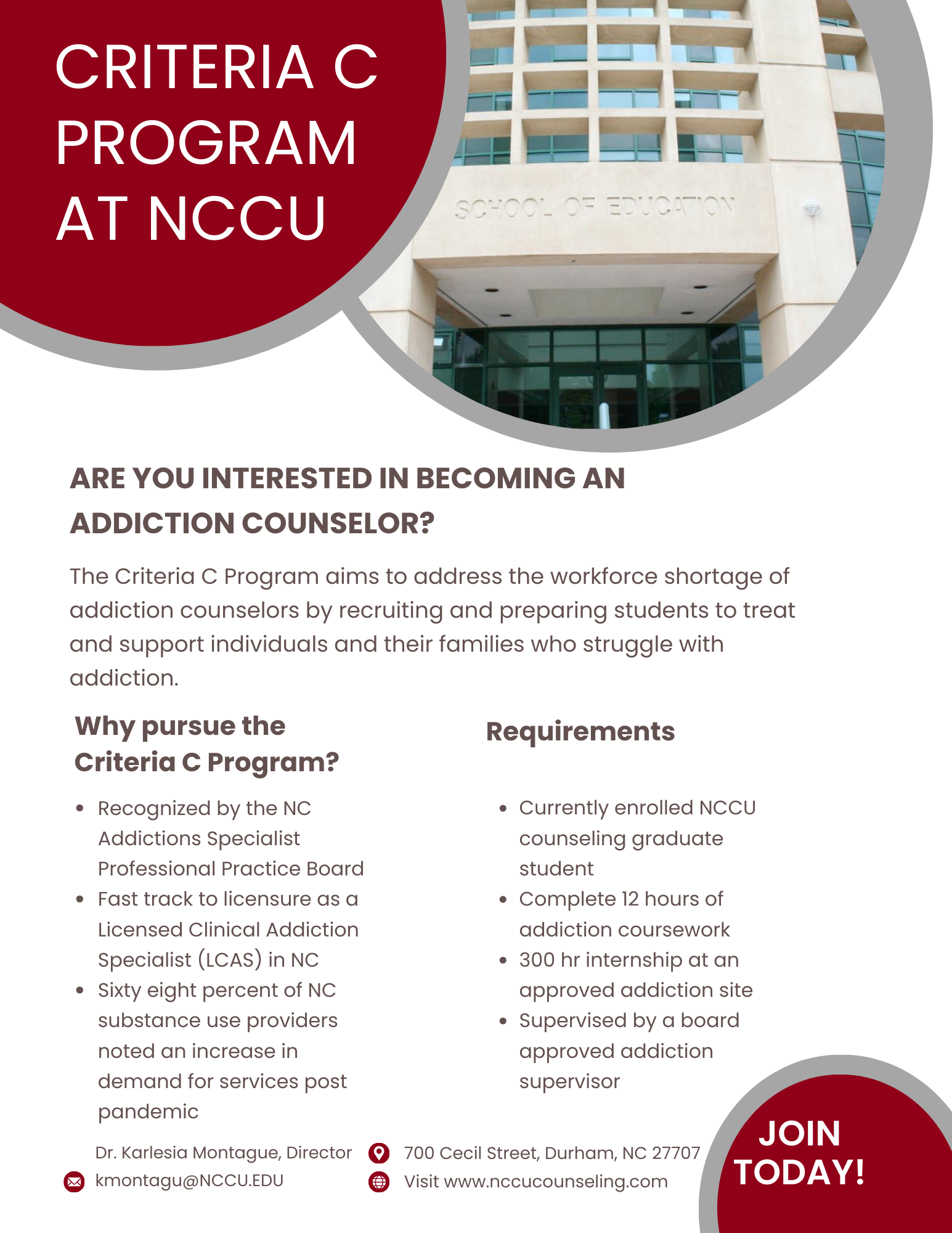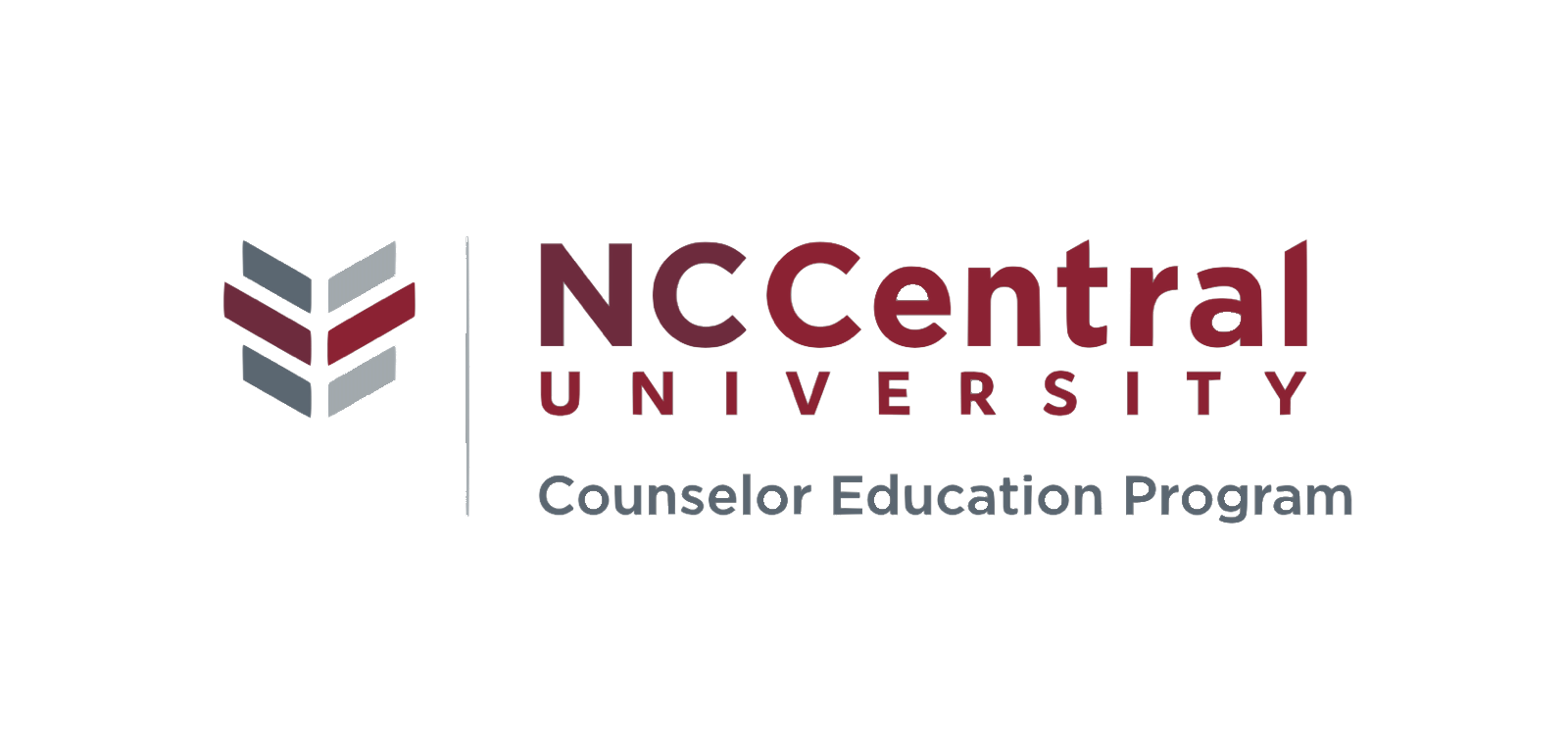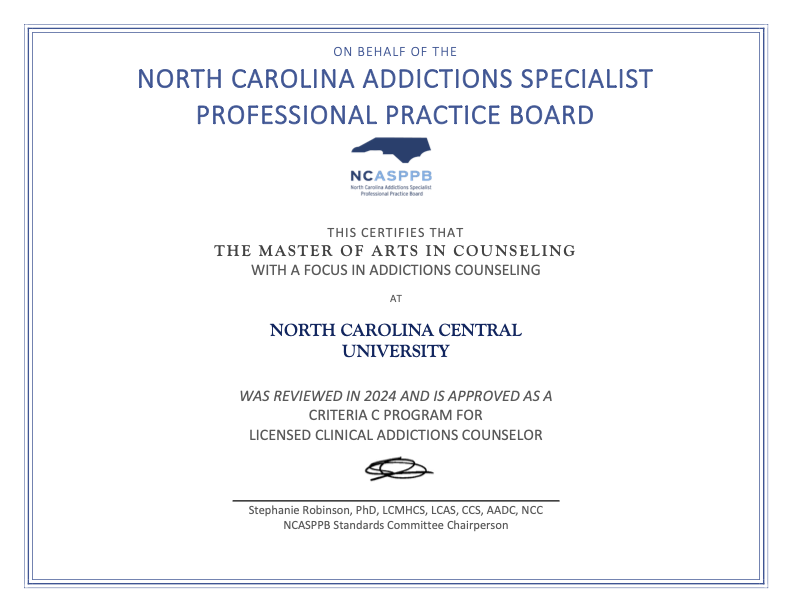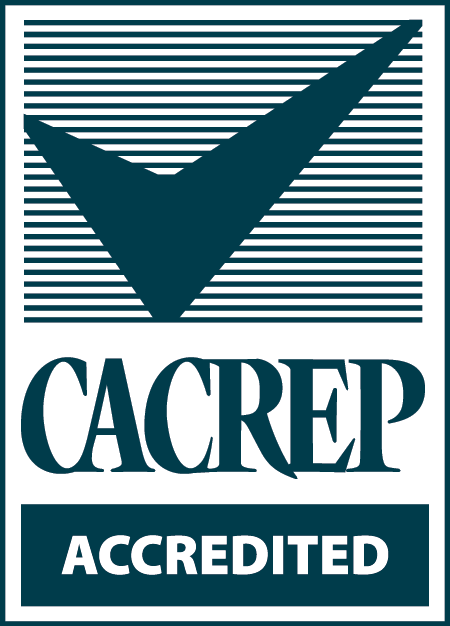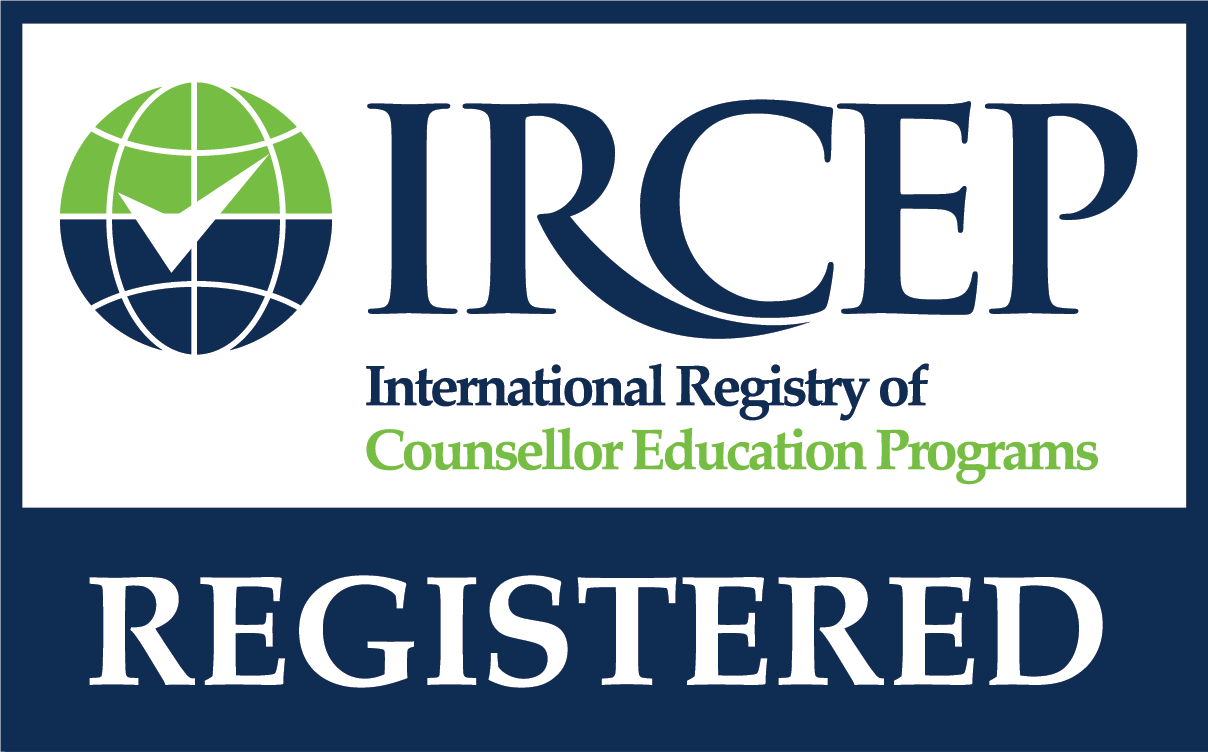The Counselor Education Program at North Carolina Central University is recognized as a Criteria C program by the North Carolina Addictions Specialist Professional Practice Board (NCASPPB). Our Criteria C program requires students to complete 12 credit hours of addiction specific training and an internship. The 12 credit hours consist of four online courses - and then a 300-hour internship at an approved facility that provides addiction specific treatment.
The required courses consist of:
CON 5306 Introduction to Addictions Counseling (3 credit hours)
This course is designed to provide an overview of substance abuse counseling and psychopharmacology for mental health counselors. Topics discussed include addiction issues, diagnosis, treatment planning and individual and group counseling strategies with diverse populations. Additionally, students will be exposed to the fundamentals of psychotropic medications. Basics of pharmacology, adverse effects, indications, and drug interactions will be discussed. Boundaries of practice and practical issues of assessment and referral will be covered. This course is required within the plan of study for the Clinical Mental Health Counseling Program.
CON 5326 Traditional and Contemporary Issues in Addictions (3 credit hours)
This course is designed to give insight into the complex fields of traditional and current substance abuse, compulsive behaviors, treatment, recovery, and prevention. Additionally, this course will provide insight on: a) traditions and philosophies of recovery treatment models and support groups; and b) ethics, confidentiality, and legal issues. It is further designed to give a global perspective on current issues in the addiction treatment field. This course consists of selected readings based on: a) traditional models of treatment and recovery; b) substance use related ethical concerns; c) empirical research; d) relevant evidence - based practices; and e) current issues in the substance and process addictions. Traditional issues impacting addiction include but are not limited to: traditional views of addiction and addiction treatment; the development of self-help addiction groups; and the formation of professional addiction services. Current issues impacting addiction include but are not limited to: Living with drugs, dependency and addiction; major drugs of use and abuse; drugs and crime; the social impact of drugs; as well as prevention, treatment and education are addressed.
CON 5327 Treatment of Addictive Disorders (3 credit hours)
This course is focused on treatment processes and settings for substance use, addictive behaviors, and other behavioral health conditions. Multidimensional assessment and the 12-core functions of addictions counseling are covered. Prevention, treatment, and intervention across levels of care is discussed in context.
CON 5328 Family Counseling and Addictions (3 credit hours)
This course is designed to provide an overview of this history, theory, and practice of family therapy with a focus on working with families who experience substance use and/ or other addictive behaviors. Topics will include conceptualizing addictions within the family system, therapeutic approaches to working with substance use and addictive behaviors in families, and professional issues in family therapy.
CON 5390 Internship in Counseling (3 credit hours)*
An opportunity for advanced students in counseling to demonstrate in a school, institution, agency or industry the ability to apply interviewing skills, career assessment and counseling techniques in individual and group sessions.
*The 300-hour internship must be completed at an approved facility that provides addiction specific treatment -- and receive a minimum of 30 hours of addiction specific supervision from a NCASPPB-approved supervisor (e.g., CCS or CSI).
The Criteria C program at NCCU meets the North Carolina Addictions Specialist Professional Practice Board (NCASPPB) educational requirements for the Licensed Clinical Addiction Specialist (LCAS) credential. The Criteria C Program requirements are specifically for the state of North Carolina. Students cannot assume that by completing the program they will be eligible for an addiction license or certification outside of NC. Out-of-state students interested in purusing an addiction credential in their state should contact their state's addiction board for educational requirements.
Students will not qualify for Criteria C if they do not complete a Criteria C approved internship in the appropriate setting.
Students must be a currently enrolled NCCU Counseling student in order to enroll in internship within the NCCU Counseling Program. Students enrolled in the Counseling Program will receive their addiction specific supervision during internship from their university supervisor.
Questions? Contact Dr. Karlesia Montague
